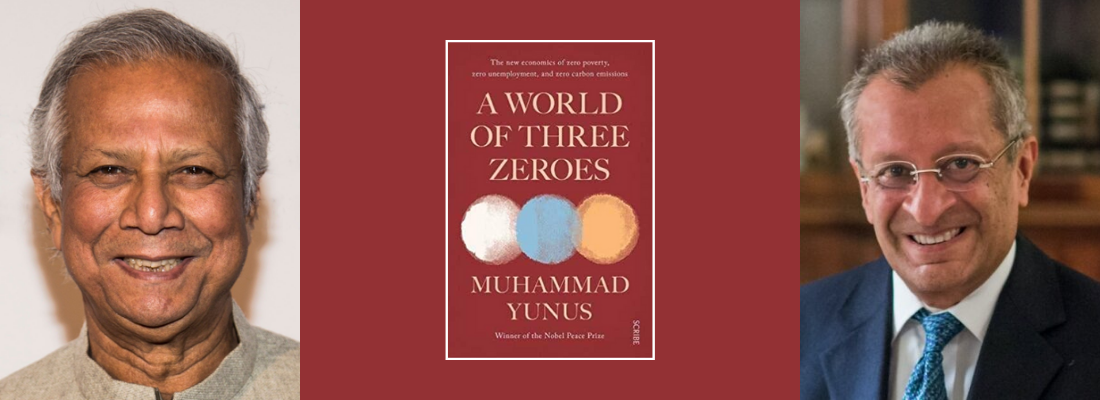Mohamed Amersi interviews Mohamed Yunus to uncover his story so far and hopes for the future
The Commonwealth Enterprise and Investment Council hosted a live intimate conversation, chaired by Lord Marland, Chairman, CWEIC, between Mohamed Amersi and Professor Mohamed Yunus. Professor Yunus is a Nobel Prize winner, social entrepreneur, banker, economist and the Founder of Grameen Bank.
The conversation began with Professor Yunus sharing his experience as an Economics Professor in Bangladesh teaching economic theory, alongside his practical exposure to the extreme inequality across the local communities in Bangladesh. He was quick to identify the entrepreneurial capacity amongst the poor, and dedicated his career to unlock this opportunity to achieve sustainable and equitable growth for all.
Shifting mindsets – From charity and philanthropy to social business
Mohamed questioned Professor Yunus on his theory of perpetual dependency caused by the structures and systems supporting charity and philanthropy. Professor Yunus described his method of problem-solving through setting up social businesses. Social businesses cover the cost, provide the service, and remove the goal of profit maximisation. Yunus rejects the assumption that humans are purely driven by self interest, and argues that humans are also driven by common interest. Taking these dual interests into account, he believes there is a need for two organisational structures; profit maximising businesses to cater to the self-interest and social businesses to serve the common interest.
Professor Yunus’ book “A World of Three Zeros” sets the goals of zero poverty, zero unemployment, and zero carbon emission for the world. He describes the inflexion point presented by Covid-19 as an opportunity to design a new sustainable and equitable system. In this new system, there is a possibility to reimagine and rebuild new systems that can achieve the three zeros. In order to achieve this change we need to confront the ugly wealth concentration where one percent of the population owns 90% of the wealth in the world.
Professor Yunus shared an analogy of the people in this world on a train moving at incredible speed. Covid-19 has brought the train to a sudden standstill. This train we were all traveling on has stopped in its tracks. We have been given one last chance to make new decisions and reset our future paths, with the awareness of our shared motivation for common interest. We now have the chance to build new roads and new pathways to a new future. Yunus emphasised that the decisions we take at an individual level to work towards the three zeros are just as important as the decisions at the organisational level. Every human counts.
Please get in touch to access a recording of the virtual conversation.

